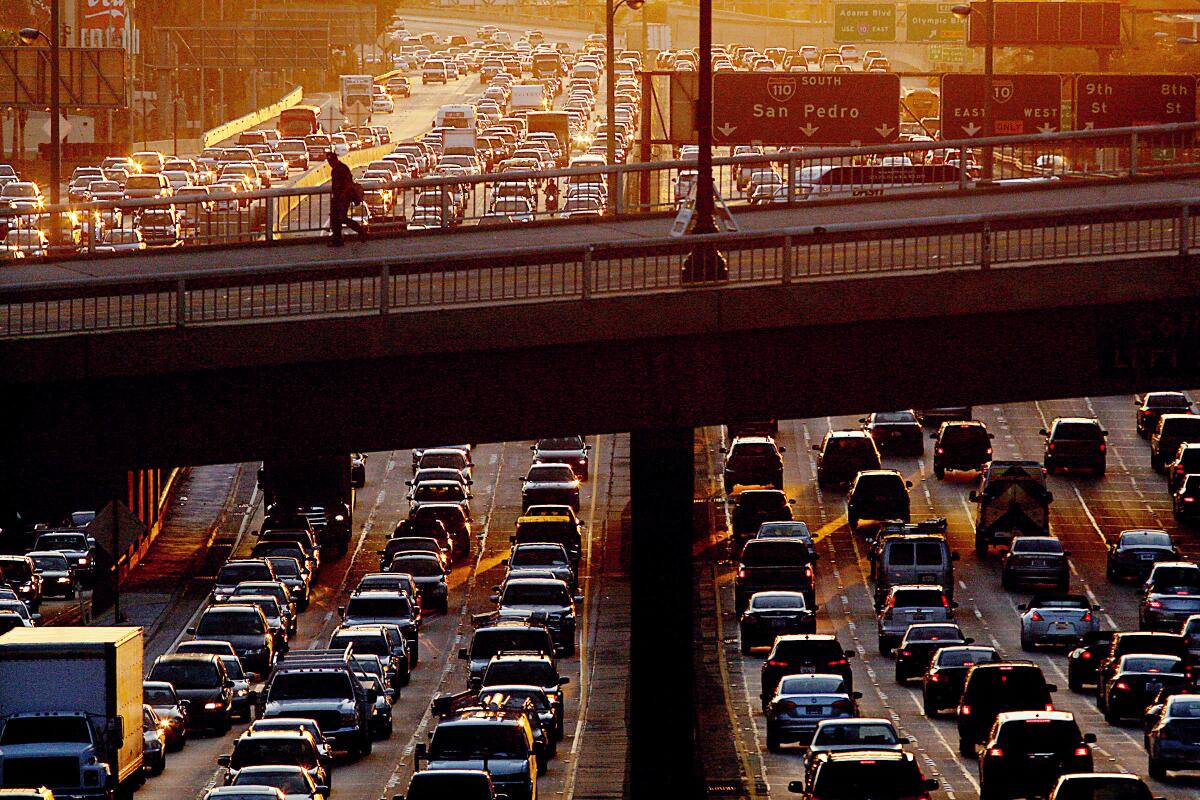‘Pay as you go’ express lane program removes toll evasion penalties on L.A. Freeways

Angelenos driving on the 10 and 110 freeways can now use the express lanes without fear of penalty.
Previous fines for using the Metro ExpressLanes system without a FastTrak transponder ranged from $25 for the first violation to more than $300 if a motorist was pulled over by a CHP officer during illegal use of the toll lanes.
The Los Angeles County Metropolitan Transportation Authority agreed this week to eliminate all fines relating to toll evasion after hearing the results of a pilot program that seeks to relieve congestion on clogged roadways.
Cars traveling in the pair of express lanes are no longer required to obtain a FasTrak transponder. Motorists with the devices can expect to have their toll debited automatically from an account as usual.
Those without a transponder can expect to “pay as you go,” plus an $8 processing fee, according to Metro officials.
The toll system will photograph the vehicle’s license plate and search for the registered vehicle owner’s mailing address with the Department of Motor Vehicles. Once found, Metro ExpressLanes will mail a notice to the vehicle owner with payment instructions for the toll amount in addition to an $8 fee. Payment can be made online, by phone or in person.
If payment is not made, Metro can ask the DMV to put a hold or lien on the vehicle owner’s registration. Additionally, switchable transponders are the only way for customers to declare themselves as High Occupancy Vehicles if they want to travel toll-free in the express lanes.
Program leaders touted the $8 pay-as-you-go processing fee, which is designed to cover the costs of operating the new program without being punitive, as a substantial reduction from Metro’s original violation amount.
Los Angeles County Supervisor Janice Hahn, who introduced the proposal in 2018, agreed with the sentiment.
“It’s not a crime to drive a car on the freeways,” Hahn said, noting she hoped to see an even smaller fee suggested by staff.
“But I’m not going to fight that today,” the supervisor added. “I think having the program permanent is really important and I hope our agency is a model for other transit agencies that could also copy this idea of compassionate lanes.”
More to Read
Sign up for Essential California
The most important California stories and recommendations in your inbox every morning.
You may occasionally receive promotional content from the Los Angeles Times.











